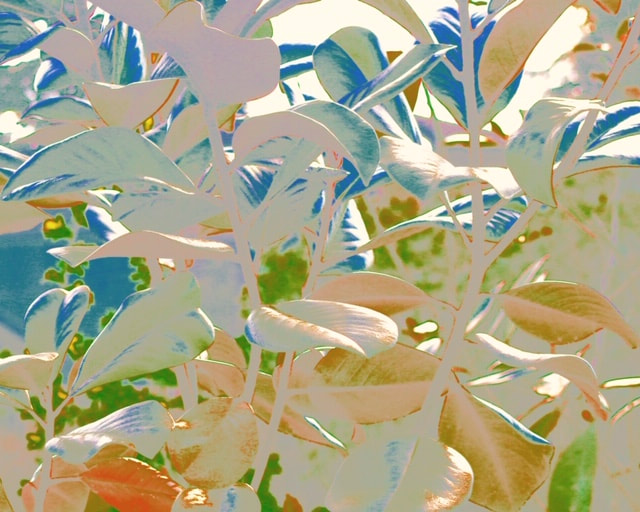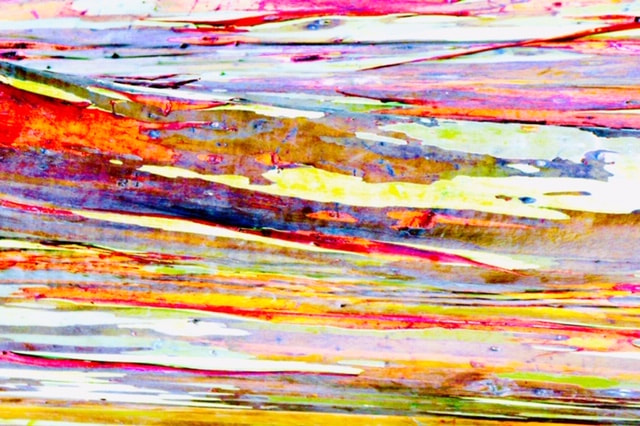By Clara Chalmers
Mr. Sword - a name that has worked itself into the very framework of Collingwood School. Whose memory in the past weeks has been plucked at and polished; presented, in expectation of his retirement, arrayed with words such as “inspiring” or “legendary.” He sits now, in an office washed in a pale light, a guitar peeking from the corner - claiming he is not an artist, of which he deems:
“...a very heavy term.”
Having agreed to interview over Google Meets, despite a deficient laptop - he now calmly denies he deserves to be associated with such a term. Upon being asked what criteria would befit a true artist - Mr. Sword tenders one word; money. An artist devotes their days to craft - earning a salary as so to solidify the professionalism of their pursuit.
“I haven’t had any hits yet.”
To Mr. Sword, the term “artists” belongs to the giants - the musicians whose statuses are eternalized in the gleaming CDs of his youth, the painters of whom’s work hangs in hushed galleries. Dusted daily. It is not a term to be used flippantly.
“Perhaps I am an imminent artist.”
But what is art? Mr.Sword - generally detached from monetary values and practicality, encouraging his students to dream - proffers a more characteristic definition. He swivels his eyes upwards - peering into the great gully of his mind - and fishes from it an answer. He maintains; to create is to convert life into syllables - to interact with reality, and reveal how one experiences the world. He imparts this information slowly, reverentially - luxuriating in the idea. A perpetual question mark ascribed to the end of his sentences - inviting debate.
We discuss art - as one would in his popular philosophy classes. Then; Mr. Sword changes his mind. He proclaims that everyone can be an artist. “Art is everywhere and boundless.” For example, Mr. Sword practices artistry on a commonplace basis as the curries he has delighted in cooking his entire life.
But we have not come to discuss curries. Mr. Sword is a musician. He may perhaps deny this epithet - but will concede a passion for music. His childhood is pleasantly tinted with the classics - Chopin, Schumann, and other melodies that trickled from his parent’s radio. As a teen, he found himself inundated with the rock’n’roll of the ‘60s - populated by musicians such as Eric Clapton, who lent vitality to an age defined by protest. Songs streamed through his day to day existence; rich and heady as a summer rain, saturating him with an urge to create.
Mr. Sword thus commenced guitar lessons at age fourteen. He fancied himself a rock star; and took to writing songs. Poetry... here, he pauses, overcome by the monumentality of the term. In order to express the influence wrought on him by words - Mr.Sword relays a story. For his sixteenth birthday, his parents gifted him a stereo set. In the sixties, this was an enviable possession - but Mr. Sword found it “pretentious.’ Thus, with permission from his parents, he returned the set; using the profits to purchase the complete works of Percy Shelly. Books, like music, have lined his life. Often, Mr. Sword shows up to class eager to share an excerpt from his current read - revelling in the words as much as he does the peanut butter and jelly sandwiches.
As a youth, Mr. Sword recorded several of the songs he had written, and proffered the ensuing CD to a producer - of whom stated merely that “the production value is good.” Despite this spurn - he preserved, his guitar a constant companion of whom, in retirement, he hopes to deepen his relationship with.
This enthusiasm surely would earn Mr.Sword the title of an artist. However, we agree to call him an “explorer” instead. This term, after all, is more descriptive of his habits. As an only child, he lacked the diversion of siblings, and thus explored his environment for means of entertainment. This sensitivity to his surroundings - and all they offer to the imaginative mind - has remained with him into adulthood. In particular, Mr.Sword is attuned to light. He dislikes winter, and rooms with improperly adjusted blinds. He is on a constant quest for light - to him a living breathing being - and seeks to clarify how it is transmitted, how it bends and affects reality. Aptly, Mr. Sword has taken up photography. This he terms an experiment - unconstrained to schedules, or deliberateness on his part. When inspiration seizes him, he snaps a photo; then, later, manipulates the images. Shifting colour balances - exposures, attempting to recreate how he experienced the moment. In these moments, time and space dissolve. He does not recognize that he is creating, nor “being an artist,” but is merely possessed by the joy of doing something he loves. The terms we spent so long defining fizzle into irrelevance; artists create not because they are artists, but because the act is ingrained in their daily motions. So a part of them that it cannot be constrained by a word.
Mr. Sword frames several of his photographs. Friends admire them - one coveted it for so many years that Mr. Sword eventually offered the image as a gift. Some express distaste,or dubiety at his radicalness. The latter group, Mr. Sword “writes off as artistic dolts.” Art is subjective - and therefore not everyone will appreciate his interpretation of reality.
Mr. Sword, above all else, is a teacher. For some forty years, he has mined into the callouses surfaces of curriculums, searching for what is “stimulating and creative and mind-expanding and enriching.” In typical artistic fashion, Mr.Sword “ignores the boundaries.” He crafts discussion; initiates debate as one would gesso a canvas, allows discussion to divert like watercolor seeping across a page. The students he has molded as a result are, indeed, his magnum opus.
I ask him what advice he would offer those wanting to become an artist. He replies:
“Stop wanting to become an artist - and be.”
Mr. Sword - a name that has worked itself into the very framework of Collingwood School. Whose memory in the past weeks has been plucked at and polished; presented, in expectation of his retirement, arrayed with words such as “inspiring” or “legendary.” He sits now, in an office washed in a pale light, a guitar peeking from the corner - claiming he is not an artist, of which he deems:
“...a very heavy term.”
Having agreed to interview over Google Meets, despite a deficient laptop - he now calmly denies he deserves to be associated with such a term. Upon being asked what criteria would befit a true artist - Mr. Sword tenders one word; money. An artist devotes their days to craft - earning a salary as so to solidify the professionalism of their pursuit.
“I haven’t had any hits yet.”
To Mr. Sword, the term “artists” belongs to the giants - the musicians whose statuses are eternalized in the gleaming CDs of his youth, the painters of whom’s work hangs in hushed galleries. Dusted daily. It is not a term to be used flippantly.
“Perhaps I am an imminent artist.”
But what is art? Mr.Sword - generally detached from monetary values and practicality, encouraging his students to dream - proffers a more characteristic definition. He swivels his eyes upwards - peering into the great gully of his mind - and fishes from it an answer. He maintains; to create is to convert life into syllables - to interact with reality, and reveal how one experiences the world. He imparts this information slowly, reverentially - luxuriating in the idea. A perpetual question mark ascribed to the end of his sentences - inviting debate.
We discuss art - as one would in his popular philosophy classes. Then; Mr. Sword changes his mind. He proclaims that everyone can be an artist. “Art is everywhere and boundless.” For example, Mr. Sword practices artistry on a commonplace basis as the curries he has delighted in cooking his entire life.
But we have not come to discuss curries. Mr. Sword is a musician. He may perhaps deny this epithet - but will concede a passion for music. His childhood is pleasantly tinted with the classics - Chopin, Schumann, and other melodies that trickled from his parent’s radio. As a teen, he found himself inundated with the rock’n’roll of the ‘60s - populated by musicians such as Eric Clapton, who lent vitality to an age defined by protest. Songs streamed through his day to day existence; rich and heady as a summer rain, saturating him with an urge to create.
Mr. Sword thus commenced guitar lessons at age fourteen. He fancied himself a rock star; and took to writing songs. Poetry... here, he pauses, overcome by the monumentality of the term. In order to express the influence wrought on him by words - Mr.Sword relays a story. For his sixteenth birthday, his parents gifted him a stereo set. In the sixties, this was an enviable possession - but Mr. Sword found it “pretentious.’ Thus, with permission from his parents, he returned the set; using the profits to purchase the complete works of Percy Shelly. Books, like music, have lined his life. Often, Mr. Sword shows up to class eager to share an excerpt from his current read - revelling in the words as much as he does the peanut butter and jelly sandwiches.
As a youth, Mr. Sword recorded several of the songs he had written, and proffered the ensuing CD to a producer - of whom stated merely that “the production value is good.” Despite this spurn - he preserved, his guitar a constant companion of whom, in retirement, he hopes to deepen his relationship with.
This enthusiasm surely would earn Mr.Sword the title of an artist. However, we agree to call him an “explorer” instead. This term, after all, is more descriptive of his habits. As an only child, he lacked the diversion of siblings, and thus explored his environment for means of entertainment. This sensitivity to his surroundings - and all they offer to the imaginative mind - has remained with him into adulthood. In particular, Mr.Sword is attuned to light. He dislikes winter, and rooms with improperly adjusted blinds. He is on a constant quest for light - to him a living breathing being - and seeks to clarify how it is transmitted, how it bends and affects reality. Aptly, Mr. Sword has taken up photography. This he terms an experiment - unconstrained to schedules, or deliberateness on his part. When inspiration seizes him, he snaps a photo; then, later, manipulates the images. Shifting colour balances - exposures, attempting to recreate how he experienced the moment. In these moments, time and space dissolve. He does not recognize that he is creating, nor “being an artist,” but is merely possessed by the joy of doing something he loves. The terms we spent so long defining fizzle into irrelevance; artists create not because they are artists, but because the act is ingrained in their daily motions. So a part of them that it cannot be constrained by a word.
Mr. Sword frames several of his photographs. Friends admire them - one coveted it for so many years that Mr. Sword eventually offered the image as a gift. Some express distaste,or dubiety at his radicalness. The latter group, Mr. Sword “writes off as artistic dolts.” Art is subjective - and therefore not everyone will appreciate his interpretation of reality.
Mr. Sword, above all else, is a teacher. For some forty years, he has mined into the callouses surfaces of curriculums, searching for what is “stimulating and creative and mind-expanding and enriching.” In typical artistic fashion, Mr.Sword “ignores the boundaries.” He crafts discussion; initiates debate as one would gesso a canvas, allows discussion to divert like watercolor seeping across a page. The students he has molded as a result are, indeed, his magnum opus.
I ask him what advice he would offer those wanting to become an artist. He replies:
“Stop wanting to become an artist - and be.”



